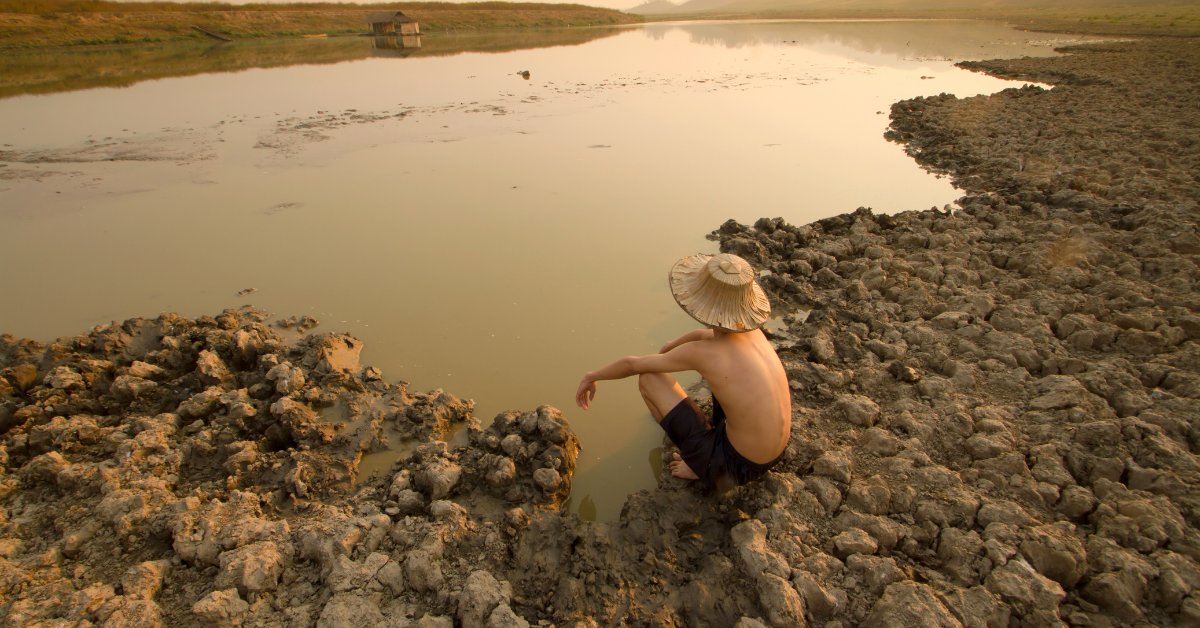
Climate Change and Refugee Law
Climate change is the defining crisis of this generation, with NTU we are co-funding a PhD which investigates climate change in relation to refugee law.

Emma Robinson
Climate Change and Refugee Law funded PhD opportunity
Since 2008, it is estimated that 22.5 million people every year are displaced by extreme weather events (according to research by the Internal Displacement Monitoring Centre. The impacts of this displacement led to the United Nations Refugee Agency recognising that the effects of climate change are increasingly creating refugee movements. Currently however, the term ‘refugee’ does not cover those fleeing from the consequences of climate change. Therefore, as this issue becomes more pressing, in a collaboration with Nottingham Trent University, we are co-sponsoring a PhD student to research the intersection between climate change and refugee law. We spoke to the successful PhD candidate, Irene Sacchetti about why she chose to pursue this research project.
An introduction to Irene Sacchetti
Irene Sacchetti is certainly qualified to take lead on this project, here’s a brief overview of Irene’s impressive CV:
-
Irene Sacchetti graduated from the University of Bologna in 2020 where she gained an integrated Masters degree in Public International Law.
-
Since gaining this degree, Irene has gone on to study at the University of Oxford’s School of Climate Change.
-
Irene has interned at the Geneva Centre for Justice.
-
Irene is a climate law fellow at the Centre for Climate Change Law and Sustainability Studies, at the Institute of State and Law of the Czech Academy of Sciences in Prague.
Why did you want to pursue this PhD?
I have a Bachelors and Masters degree in Law from the University of Bologna and my Masters dissertation studied the topics of climate change induced displacement under existing international law and recent case law developments. I enjoyed this research but felt that there was so much left to explore which is why I decided to study a PhD. Furthermore, I would like to be an academic in my future career and this PhD is a unique opportunity to immerse myself into the field of research. However, I am not excluded from become a legal advisor too!
Other than the topic of the PhD being a dream to me, the fact that Nottingham Trent University is home to the Centre for Rights and Justice means that there is a real possibility to research and engage with policymakers and to organise events. Additionally, the fact that this PhD is a collaboration between a university and a firm is a really good and interesting opportunity: on one hand you get to have an ‘on the ground’ perspective from the legal experts and on one the other you get the views of the academics.
Where did this passion for fighting injustice come from?
I have always been passionate for nature and the Earth and have always displayed care towards it and everything in it. Every human and non-human needs a good environment to live in. In my opinion, the planet as a whole should be protected by law at all levels, as we live in an interrelated and interdependent system where every single action has an effect.
Also the impacts of climate change in Italy are devastating but currently few people care or are aware of what is happening (and what will happen in the coming years) and why the weather is constantly changing. So I think my interest in the topics is a combination of my personal experience in relation to the effects of climate change and my passion for the planet and nature more generally.
Other than the effects in Italy, what are some of the other widespread impacts of climate change?
Migration is an effect of climate, with people forced to flee their homelands especially in developing countries. People are dying every day in the Mediterranean Sea as a result: many of which are from North or Central Africa. Most of the time these people are targeted as economic migrants or victims of war and conflict. However, it is more likely that the root causes of displacement is the detrimental impact of changes in climate.
For example, desertification is the major issue in North Africa and regions under the Sahel line will soon dry up thereby suffering from water and food shortages. This means that more individuals will migrate to the North. If they migrate then the first Western country in which they will be met with will be Italy. However, the Italian Government is not really tackling the issue from the root causes: migration as a consequence of climate change is already taking place and will become even more evident in the coming years.
Aside from this issue, Italy is currently facing water shortages: it’s not every year but it’s enough to affect the crops for the year. The current and future affects of climate change is really worrying for me.
What topics do you think this PhD will touch on?
Obviously, I will need to discuss the study further with my supervisors, however, in my research proposal I detailed how I wanted to look at climate change from a human rights perspective. A possible area of research could look into how the recognition of new human rights (e.g. the right to a healthy environment and the right to a stable climate) either helps or hinders the protection of climate migrants and whether national jurisdictions have developed inherent case law. It would be interesting to analyse and compare how specific national jurisdictions conceptualise climate migration within human rights interpretation and application, in light of the well known Teitiota case.
Currently, I am discussing with the supervisors whether this research could look at human rights law response and protection to climate displacement of most vulnerable groups where cases of intersectionality arise, as climate migration is not ‘human rights neutral’. In fact, climate change is not only a ‘threat multiplier’ but mostly a ‘vulnerabilities multiplier’. Personally, I think that this is a really good angle because it’s a new and interesting intersection to research, in view of the recent decision of the UN Child Rights Committee on states’ cross-border responsibility for harmful impact of climate change.
What do you wish to gain from this PhD?
Currently, I see myself as going into more of an academic career because I am keen to research the fields of human rights and climate change further. However, I am aware that there’s an issue with academics keeping their research within the university rather than sharing it with external stakeholders. Therefore, I want to be active and involved with migrants, external stakeholders, researchers, and policy makers to ensure that the research is having an actual impact. Through working with Paragon Law, I can confer with you and share information on current case law which is going on in the UK. Through having this collaboration, I will develop a stronger background knowledge and hopefully be able to help people ‘on the ground.
Speak to an immigration advisor
If you wish to claim asylum in the UK please get in touch today and one of our asylum team will get in contact with you shortly.
Subscribe for updates

Climate Refugees
Not ready to talk? Our free immigration resources may have the answer to your questions
%20Visa%20Update%20New%20Route%20for%20Adult%20Children.png)
Hong Kong BN(O) Visa Update: New Route for Adult Children
%20(1).png)
British Citizenship Application: Requirements & Process (2026)
.png)
A Fairer Pathway to Settlement: UK Earned Settlement Explained

UK ETA Enforcement from 25 February 2026: What Travellers Need to Know

Global Talent Visa: Eligibility, Requirements and Application Process

Border Security, Asylum and Immigration Act 2025 – What Employers Need to Know
.png)
UK Immigration Rule Changes 2025: Visa and Settlement Reforms Explained
%20What%20Sponsors%20Need%20to%20Know%20(1).png)
Upcoming Increase to the Immigration Skills Charge (ISC): What Sponsors Need to Know



